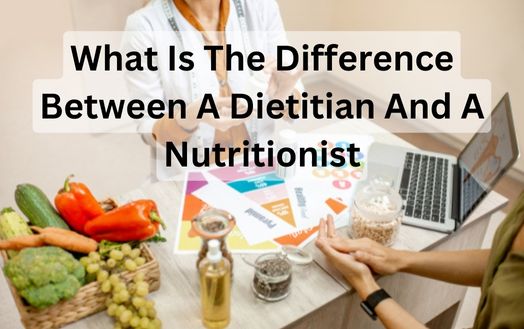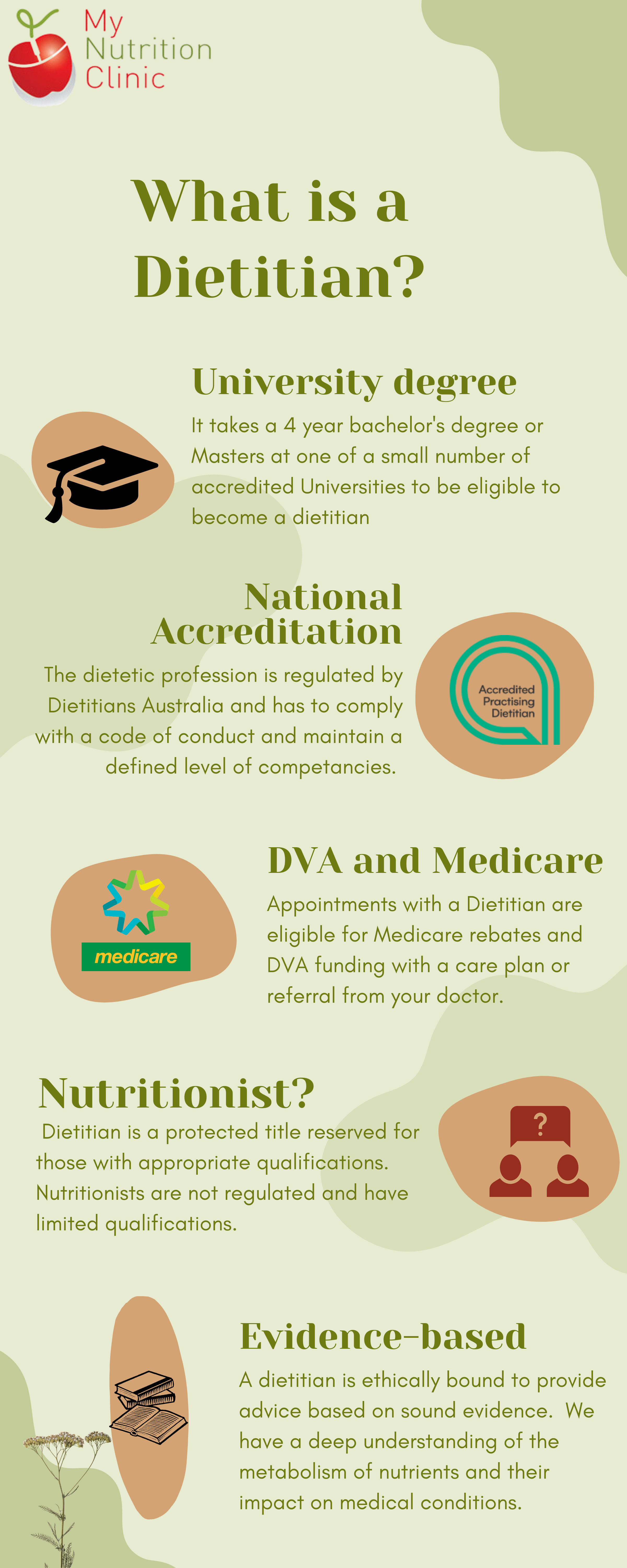All Categories
Featured
Table of Contents
-1
In the USA and many various other countries, a dietitian is a board-certified food and nutrition professional. They are very enlightened in the field of nourishment and dietetics the science of food, nutrition, and their influence on human health and wellness. With considerable training, dietitians get the proficiency to give evidence-based medical nourishment therapy and dietary therapy tailored to fulfill a person's demands.
-1To gain these credentials dietitians-to-be need to initially make a bachelor's degree or equivalent credit ratings from an accredited program at an university or university. Commonly, this needs an undergraduate science degree, including programs in biology, microbiology, organic and not natural chemistry, biochemistry, composition, and physiology, as well as even more specific nutrition coursework.
Nutritionist For Athletes
-1This permits them to assess acute demands, focusing on life-threatening conditions. Inpatient and outpatient dietitians additionally offer nutrition education and learning to individuals with specialized needs, such as those recently out of surgery, in cancer treatment, or identified with persistent illnesses like diabetes mellitus or kidney disease. In the outpatient setup, they provide much more thorough dietary counseling functioning in the direction of a nutrition-oriented goal.
-1Study dietitians generally function in study health centers, companies, or universities. Once dietitians have earned their qualifications and are working in the field, they can go on to specialize in a certain subcategory, such as pediatric medicines or sporting activities dietetics.
-1They may additionally teach in a scholastic or study institution or compose concerning nutrition-related subjects. Others might function as wellness and nourishment specialists in media or as speakers. Dietitians are certified to handle nourishment treatment throughout a period of intense and chronic conditions. The sort of conditions they treat depends most on the setup of their practice.
Plant-based Dietitian
-1In numerous states, such as Alaska, Florida, Illinois, Maryland, Massachusetts, and Pennsylvania, RDs and CNSs are approved the very same state certificate, typically called an Accredited Dietitian Nutritional Expert (LDN) certificate. In states that do not control using this term, anybody with an interest in diet or nourishment might call themselves a nutritional expert.
-1Nevertheless, because uncredentialed nutritional experts typically lack the expertise and training for clinical nourishment therapy and nourishment therapy, following their suggestions can be taken into consideration damaging (). Before getting in touch with a nutritionist, you might intend to examine whether your state manages who might use this title. In the united state states that don't control the term, no degrees or qualifications are required to be a nutritional expert.

-1
In states that do mandate licensure, the CNS or RD credential may called for. Those with CNS credentials are wellness specialists like nurses or medical professionals with advanced health levels who have actually looked for out additional coursework, finished supervised method hours, and passed an examination supervised by the Board for Accreditation of Nourishment Specialists.
-1While several of these approaches may have durable clinical support, others might not. Giving nourishment suggestions without the proper understanding and training can be damaging, particularly when counseling those with health problems. If you are thinking about getting in touch with a nutritionist, you may want to ask if they are a CNS or have state licensure or qualification, or an additional credential.
Eating Disorder Dietitian
-1Numerous states specifically control this term. Furthermore, nutritionists might pursue a sophisticated CNS qualification.
-1It can be testing to assist people make authentic, enduring adjustments in their lives. Nevertheless, when you obtain a successful instance, the payback can be exceptionally fulfilling. If it's a career choice that you desire to go after, there are two main profession options offered to you. Both dietitians and nutritional experts offer an array of nutrition-based services to customers.
-1They have to have completed some level of education and learning in their field. They are additionally needed to have finished approximately a year of monitored work, working within a led program at a health care center, catering organization, or neighborhood body. Dietitians have much higher expectations positioned on their abilities and degree of professionalism and reliability.
-1This indicates that there is no body that supervises their credentials and no particularly stringent standards that nutritionists need to follow in order to be able to exercise. Dietitians, on the various other hand, are registered with nationally acknowledged bodies, such as the Dietitians Organization of Australia. They need to abide by the National Competency Requirements for Dietitians.
Vegan Nutritionist ( Nedlands 6009)

-1
Nevertheless, you can practice as a nutritionist without the same level of certification as a dietitian. Nutritional expert courses can differ in length and top quality, with some as brief as 6 weeks and covering much much less content than a dietetics program. Depending upon your education service provider, you can obtain a significant quantity of knowledge via researching a simple nutrition program; nonetheless it is very important to check out the program web content prior to starting.
-1This can consist of attending market seminars or checking out market publications. Nutritional experts, on the other hand, usually make their qualifications in order to supplement various other credentials and provide much better suggestions to their customers. Nutritional experts can get employment in a variety of fields, consisting of public wellness advice, recommendations for individuals, and dealing with personal organisations.
-1Nutritionists can function with showing off organisations, gyms, institutions and advise media electrical outlets on fundamental terminology and appropriate usage of terms. Commonly, individuals will look for the services of a nutritional expert to aid them in getting right into shape. Dietitians can work in the majority of the same functions as nutritional experts. With a greater level of certification, they can conveniently get in a role that a nutritional expert would certainly hold, given they are or else equal.
Certified Holistic Nutritionist
-1Dietitians usually work with even more clinically delicate customers. Due to the fact that of the high level of knowledge required to provide services to these individuals, only recognized dietitians are allowed to offer treatment.
-1In Australia there is a difference between a dietitian and other dietary health companies including nutritional experts. All dietitians are nutritionists, but nutritionists without a dietetics credentials can not call themselves a dietitian.
-1Dietitians with the Accredited Practising Dietitian (APD) credential commit to continuous training and education throughout their careers. They stick to our code of conduct. Dietitians have the expertise and skills discovered in the National Expertise Requirements for Dietitians. As a profession, nutritional experts are not controlled in Australia under NASRHP or accredited under a solitary governing body.
Consultant Dietitian – Nedlands 6009
-1If you have a persistent health condition and a treatment strategy from your general practitioner, you might have the ability to declare a Medicare refund when you see an APD. Discover more concerning assist with prices when seeing a dietitian. The major purpose of individuals operating in the occupation of dietetics is embodied in this statement: The occupation of dietetics adds to the promotion of wellness and the avoidance and therapy of ailment by optimising the nutrition of populaces, communities and people.
Latest Posts
How We Can Help – Falcon
Women's Health (Caversham )
Diabetes Nutrition Management ( Nedlands)